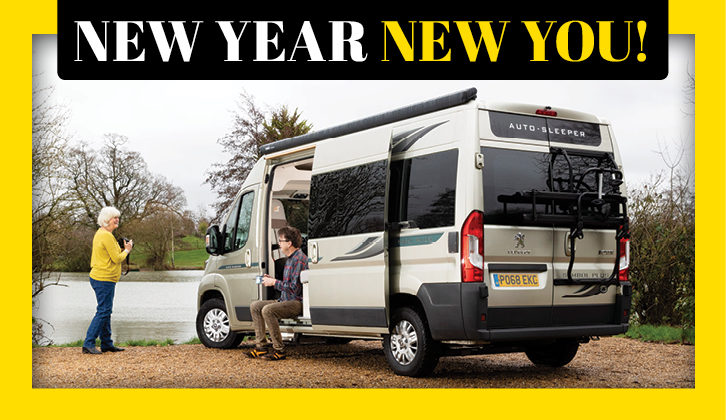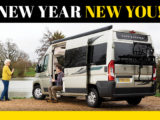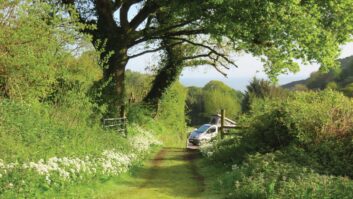We’ll be glad to wave goodbye to 2020 and begin planning our travels for the new season. From top destinations to tech tips, here’s our advice on making the most of your ’van in 2021, whether you’re a newbie or an old-hand
Motorcaravanning means different things to different people. For some, it’s an ideal chance to meet up with a circle of friends. For others, it’s a way to enjoy favourite places in their home from home.
But whatever your reasons for touring, there’s always more to explore – not just new places, but different ways to experience your travels and fully appreciate this wonderful way to holiday.
Here are just a few ways you can get more from your motorcaravanning in 2021.
Driver training
While many of us love being behind the wheel of our ’van, some find that driving is a necessary evil at either end of the fun part of a holiday. But with some expert guidance, it can become a satisfying aspect of the touring experience.
A spot of confidence-building driver training could be just what you need to improve your skills. If you enjoy the driving, you will find touring far more pleasurable.
Both The Camping and Caravanning Club and the Caravan and Motorhome Club offer motorhome manoeuvring courses, and there are plenty of independent schools offering specialised driver training.
For example, a Motorhome Manoeuvring Course from the Caravan and Motorhome Club costs £189 for a six-hour course. Attendees will learn skills such as the principles of driving a larger vehicle, manoeuvring an outfit forward and back, simple maintenance, straightforward safety checks, and the laws affecting motorhome drivers. They’ll also receive feedback from their one-to-one on-road session.
Maintain your ’van
You can take your motorhome to a dealer to have a service carried out, safe in the knowledge that you are in the hands of professionals. But there’s something satisfying about taking basic care of your own vehicle, or making small upgrades to it.
Thumb through back issues of Practical Motorhome or take a look at our website to find advice on subjects such as preparing your ’van for the season, or installing a solar panel.
However, do be careful not to go beyond your capabilities with safety-critical items, such as gas and electricity – some things are definitely best left to the experts!
Make your vehicle your own
Upgrades such as fitting a solar panel for off-grid camping are great, but it’s not just about adding more practical features. Why not make 2021 the year you personalise the inside of your ’van? This doesn’t necessarily mean reupholstering the entire interior. A few smart scatter cushions, or perhaps a change of curtains, can make a ’van that’s looking a bit tired feel like new again.
The satisfaction you’ll get from breathing fresh life into an ageing vehicle will be doubled if you make the soft furnishings yourself.
Go somewhere new
2020 really was enormously frustrating for motorcaravanners, campsite owners and… well, just about everyone!
Now it looks as though the travel restrictions will at last be easing, the immediate temptation is to head straight back to a favourite haunt and make your first tour of the 2021 season a banker, to somewhere you already know and love.
There’s nothing wrong with that, but if 2020’s cabin fever has taught us anything, it’s that we must make the most of the time we have while it’s ours to enjoy. So don’t just stick with the places you know, try somewhere new!
Be adventurous. Visit that far-off destination you’ve always had on your bucket list. Let 2021 be the year that you finally make it happen.
Join a club
Chances are, you’re already a member of The Camping and Caravanning Club or the Caravan and Motorhome Club – perhaps both. If not, the discounts and member benefits can make it well worth joining.
But we’re also thinking of the many owners’ clubs, and specialists such as the Dormobile Club (a club for owners of Dormobile motorcaravans )or some of the many Volkswagen owners’ clubs. These and others offer a chance for like-minded people to get together.
Stay at a farm
It’s really great to stay at a big campsite, with pristine facilities, a slap-up restaurant and a lively bar. But sometimes it can be just as good to get away from it all. If you’ve never stayed at a small farm campsite, why not make 2021 the year that you give it a try?
Fall asleep to the sound of an owl hooting in the trees, then wake up to a silent field as the morning mist begins to clear.
Switch off the phone
Modern means of communication have been a godsend in 2020, helping us all stay in touch. But it’s easy to become addicted to phones and gadgets, and Wi-Fi enabled campsites feed that addiction. Turn off the phones for a while, and tuck them away in a drawer.
You’ll discover that what’s outside the window is far more interesting than what’s on the screen!
Challenging adventures
Photography
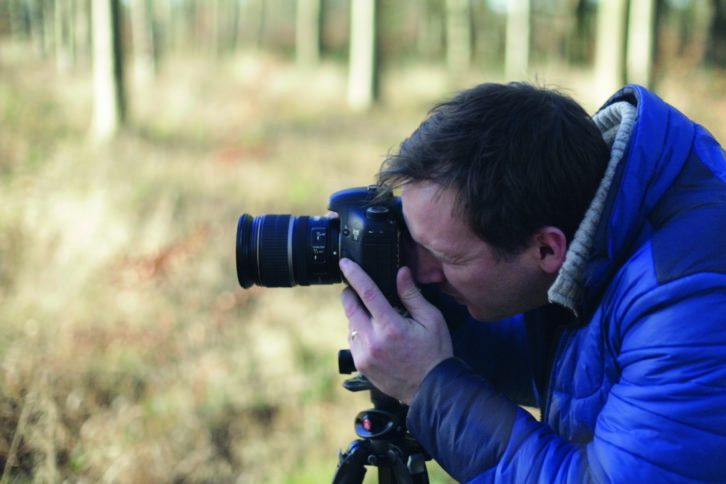 Combine your tour with
a photography workshop! Here are a few: Mark Gamblin (mgamblinphotography.com), Nigel Forster (creativephoto
graphytraining.co.uk) and Matt Holland (mihollandphoto.com).
Combine your tour with
a photography workshop! Here are a few: Mark Gamblin (mgamblinphotography.com), Nigel Forster (creativephoto
graphytraining.co.uk) and Matt Holland (mihollandphoto.com).
Cycling
Some vans have fittings on the rear wall for a bike rack, or you can carry bikes on the A-frame (being mindful of the noseweight) or on the tow car. Many sites offer bike hire. Use the Sustrans National Cycle Network (sustrans.org.uk) to find a route near you.
Kayaking
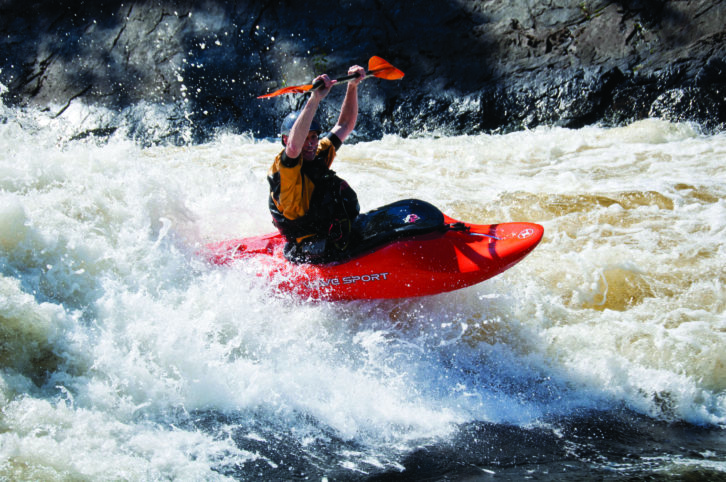
Sea kayaking is a great way to get a new view of our coast. Try Liquid Logistics (liquidlogistics.co.uk) or Sea Kayak Devon (seakayakdevon.co.uk). Beginners might prefer a more gentle introduction with The Canal River Trust (canalrivertrust.org.uk).
Hiking
Walking is one of the principal activities of motorcaravanners keen to explore new surroundings and breathe in some fresh air. Just make sure you are suitably dressed and equipped! Find out more at Walks around Britain (www.walksaroundbritain.co.uk).
Wildlife watching
Getting closer to nature is one of the many joys
of motorcaravanning, within reach
of nature reserves, rivers, national parks (nationalparks.uk) or Areas of Outstanding Natural Beauty (landscapes
forlife.org.uk). Find places to spot wildlife, with help from Visit Britain (visitbritain.com), the Wildlife Trusts (wildlife
trusts.org), the National Trust (nationaltrust.org.uk) and the RSPB (rspb.org.uk).
Watersports
If being on the water is your preference, you’ll be pitching near a beach, lake or river and you probably already own a wetsuit. Into The Blue (intotheblue.co.uk) lists a huge variety of activities, including white water rafting, scuba diving and windsurfing, and venues, with prices, kit and training information.
Bodyboarding
“Bodyboarding is easy
to learn, hard to master,” according to the Newquay Activity Centre (newquay
activitycentre.co.uk). If you don’t know how, get lessons, because it can be a lot of fun. The centre offers tuition from beginners to highly advanced. You will need a wetsuit and a board, both of which should fit easily into your ‘van in transit.
Climbing
If you’re a beginner or want to brush up your skills, try Beyond the Edge, (beyondtheedge.co.uk), or
the National Outdoor Centre, Plas y Brenin (pyb.co.uk).
TOP TIPS
Changing a gas cylinder
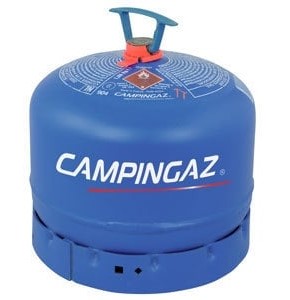
Practise the operation before going away. First make sure that all gas-fired appliances in the ’van are switched off. Next, turn off the supply from the gas cylinder to the regulator. If necessary, loosen any securing straps. Undo the gas hose-to-cylinder connection. Some are secured by thumbwheels, others require a spanner. Calor cylinders have a left-hand thread. Larger cylinders use a fast-lock operated by a black lever. Campingaz regulators in campers are often attached to the top of the cylinder. When trying to separate them, spin the cylinder, not the regulator. Make a note to change the empty one!
Driving along narrow streets
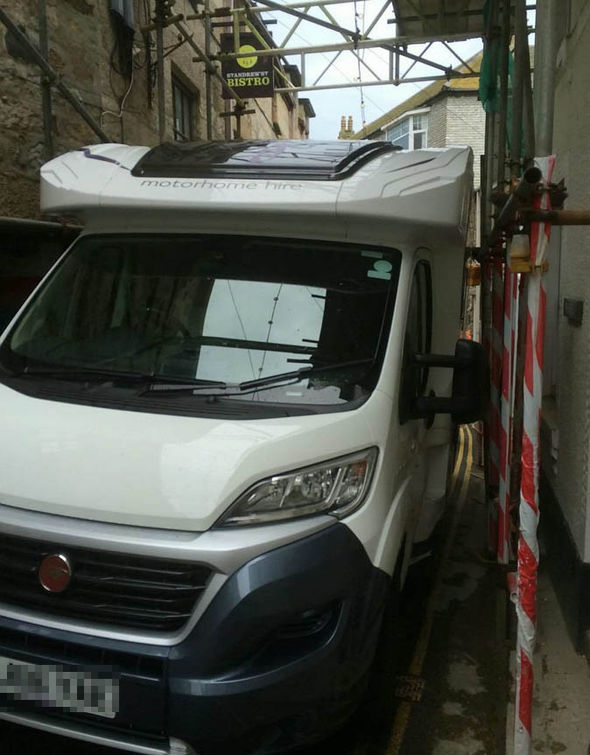
Don’t panic! Before traversing the narrowest part, activate the rear-vision camera; reversing and finding another route is best. If that isn’t a goer and if you are accompanied, ask the passenger to disembark while they can still open a door. They should be in front of the ’van, far enough away to see clearly along both sides up to the top corner edges. They should view clearances by looking up and down, so that protuberances, such as a wind-out awning, are taken into account. If solo, ask passers-by to help. In an emergency, remove window boxes from adjacent cottages!
Putting up an awning
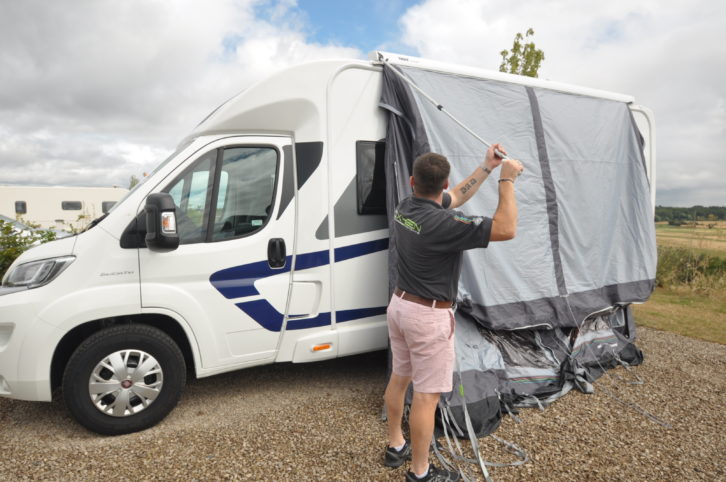 Most motorhome awnings come with a tunnel that connects to the vehicle. You should connect this first. If the awning is a driveaway awning, you’ll need to fit the driveaway kit in between the awning and the awning rail on the vehicle. Whether you have an inflatable or pole awning, it is best to pull the awning away from the vehicle as you erect it, to form a “T” shape you can work out from. Peg the corners nearest to the vehicle first, then the outer corners, then the sides. Some awnings also come with guy ropes that go over the top of the vehicle, so make sure there is enough space to peg them on the other side.
Most motorhome awnings come with a tunnel that connects to the vehicle. You should connect this first. If the awning is a driveaway awning, you’ll need to fit the driveaway kit in between the awning and the awning rail on the vehicle. Whether you have an inflatable or pole awning, it is best to pull the awning away from the vehicle as you erect it, to form a “T” shape you can work out from. Peg the corners nearest to the vehicle first, then the outer corners, then the sides. Some awnings also come with guy ropes that go over the top of the vehicle, so make sure there is enough space to peg them on the other side.
If 2020’s cabin fever has taught us anything, it’s that we must make the most of the time we have while it’s ours to enjoy
